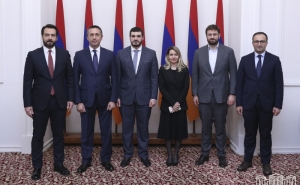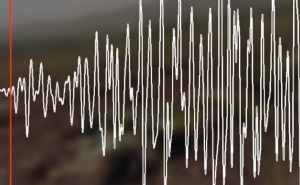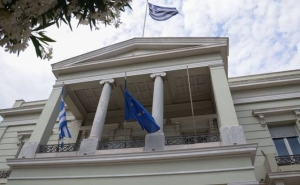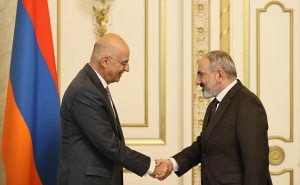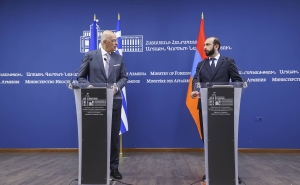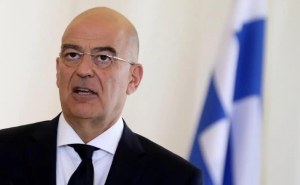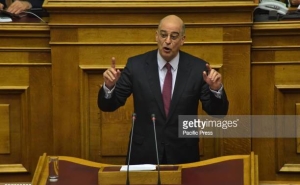Will Greece Manage to Force Macedonia Change the Name of Its State?

The dispute between Macedonia and Greece, which has been going on for more than 25 years, will soon be resolved at last. The Macedonian authorities finally agreed to change the name of the state, and not only. Macedonia is taking such a step to resolve the dispute with Greece, which prevents its entry into the European Union and NATO.
As the "Correspondent" reports, the Prime Minister of Macedonia Zoran Zaev himself stated about this. The prime minister also said that the airport, which is now named after Alexander the Great, will be renamed to "Skopje International Airport", and the highway will be named "Friendship".
Earlier, Zaev said that the new name of the country would be determined by a referendum, RT writes. However, Macedonia has not yet announced the possible variants.
It should be recalled that in January, about 1.5 million people gathered in Athens for protests against the use of the name "Macedonia" by a neighboring country. Participants of the action gathered in Athens from all over Greece. This was the second mass protest in Greece.
The fact is that Greece believes that Macedonia "stole" the name from the Greek province of the same name. The dispute over the name of the newly formed state arose in 1991, immediately after the break-up of Yugoslavia. In 1993, the United Nations recognized Macedonia under the provisional title "The former Yugoslav Republic of Macedonia". Subsequently, when the Balkan country tried to join NATO or raised the issue of relations with the EU, Greece, as a member of both organizations, blocked these processes. In 2010, The Hague International Court stated that Greece had no right to block Macedonia's entry into the Euro-Atlantic integration structures. Nevertheless, Athens did not fulfill Court's decision.
The reason for such resistance by Athens, among other things, is the possible territorial claims of the new country to Greece. The dispute over the geographical region of Macedonia, which now includes the homonymous state, the three Greek regions and the eastern part of Bulgaria, arose since the end of the Russian-Turkish war of 1877-1878.
The territory of the region was inhabited by both the Slavs, the Greeks and Albanians. In the early 20th century, the Macedonian Slav nationalists wanted to create a state throughout the territory of historical Macedonia, including the Greek Thessaloniki. After the end of World War II and the formation of socialist Yugoslavia, a republic with the same name appeared in its composition, which caused sharp dissatisfaction among the Greeks.
As it can be seen, the dispute between Macedonia and Greece remained unresolved for many years. Everything changed in May 2016, when the leader of the Social Democrats Zoran Zaev came to power in Macedonia. Already in early June, he said that he was ready to rename the country if it would help to enter NATO.
Experts note that the issue of the name of the Republic of Macedonia is again on the agenda mainly because the influence of Russia, China and Turkey is growing in the Balkans. Therefore, the EU and NATO are eager to integrate the former Yugoslav republics into their structures as soon as possible. It should be noted that efforts to resolve the problem of the name of Macedonia intensified only when the US decided that Macedonia should be in NATO.
According to experts, the policy of the current Macedonian leadership is aimed at undermining the national identity of the country, RT writes. Macedonia is actively approaching Bulgaria, despite the fact that Sofia considers the Macedonians part of the Bulgarian people. On January 15, 2018, the Macedonian Parliament ratified the treaty of friendship with Bulgaria. According to it, Macedonia should write textbooks of its history together with Bulgaria. At the same time, the process of albanization of the country is underway. On January 12, 2018, the Macedonian Parliament decided to recognize the Albanian language as the second state language. According to analysts, all this means that Macedonia is no longer a national state, to which Macedonians aspired when they left Yugoslavia.
As the experts note, the public of Macedonia is not informed about the serious changes that the government is ready to take. And this can have very serious consequences, including, leading to civil war.
-
 17:08
17:08The regular session of the Anti-corruption Policy Council takes place in Jermuk
-
 15:05
15:05The Prime Minister sends congratulatory messages to the supreme leader of Iran and the President of Iran
-
 11:11
11:11Armenia sends earthquake aid to Turkey
-
 10:43
10:43Commemoration of the Pontiff St. Sahak Partev
-
 09:16
09:16Some roads are closed and difficult to pass in Armenia
-
 19:55
19:55Phone conversation of the Foreign Minister of Armenia with the U.S. Assistant Secretary of State for European and Eurasian Affairs
-
 18:30
18:30Prime Minister Pashinyan and President Khachaturyan meet
-
 18:20
18:20Ararat Mirzoyan with Co-Chairman of the OSCE Minsk Group of France Brice Roquefeuil
-
 17:01
17:01Humans could land on Mars within 10 years, Musk predicts
-
 16:45
16:45France, US urge 'immediate' end to Nagorno Karabakh blockade
-
 16:01
16:01Blockaded Nagorno Karabakh launches fundraiser to support quake-hit Syria
-
 15:59
15:59Earthquake death toll in Turkey rises to 18,342
-
 15:43
15:43Ararat Mirzoyan Held a Telephone Conversation with Sergey Lavrov
-
 15:06
15:06French president rules out fighter jet supplies to Ukraine in near future
-
 14:47
14:475 Day Weather Forecast in Armenia
-
 14:44
14:44President Vahagn Khachaturyan wrote a note in the book of condolences opened in the Embassy of Syria in Armenia
-
 14:20
14:20Azerbaijan’s provocations impede establishment of peace and stability – Armenian FM tells Russian Co-Chair of OSCE MG
-
 12:57
12:57France representation to OSCE: Paris calls on Azerbaijan to restore freedom of movement through Lachin corridor
-
 11:40
11:40Command of Kosovo forces highly appreciated preparation of Armenian peacekeepers
-
 10:16
10:16The United States withdrew from sanctions against Syria for six months the provision of assistance after the earthquake
day
week
month
Humidity: %
Wind: km/h



